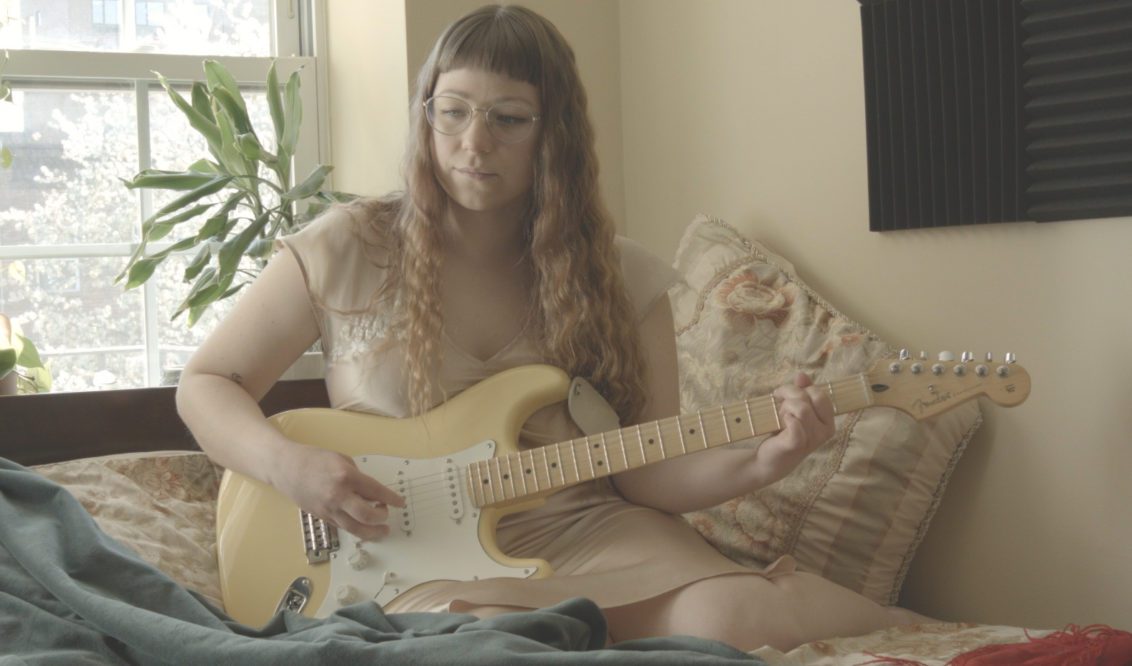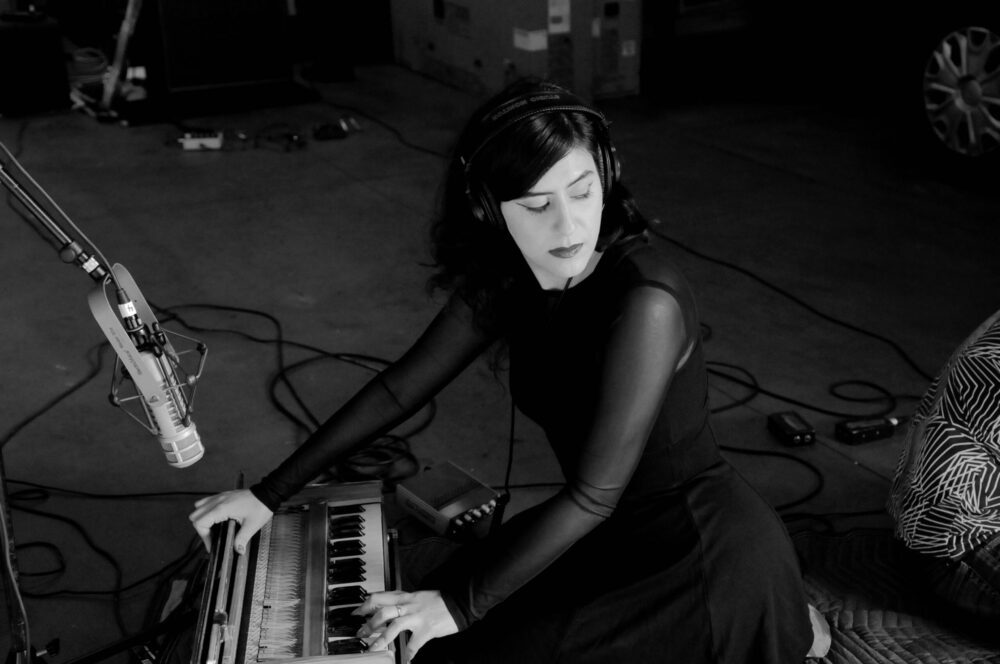Anya Baghina Explores Non-Linear Stages of Grief with “To Be Alone”


With her last four singles, Brooklyn-based songwriter Anya Baghina (also of Soviet Girls) has uncoiled an intimate vignette into the past three years of her life. The songs encapsulate a time period characterized by grief, longing, change, and growth and are capped off with her recent video for the song “To Be Alone.” While Baghina’s music walks us through her journey with mourning and isolation, she manages to make her deeply personal experiences universally relatable, as though each story she tells can be molded to fit whatever trials the listener is currently going through.
The rest have been released via Bandcamp as stand-alone singles over the last year. Each is appropriately coupled with a photograph of her late mother, who passed away in January 2017. Baghina explains that the songs were written in the wake of her mother’s passing and evolved in meaning over time. “At the moment when I really needed to let them out, I wrote them,” says Baghina. “Then I sat on them a little bit and when I re-approached them I was able to finish them.” Although chronicling the emotional aftermath of a tragic loss is an undoubtedly painful and sometimes impossible process, Baghina says that revisiting these songs after a bit of time gave her a chance to reflect on her growth.
She remembers the day that she finished writing her latest single, “To Be Alone.” “It felt kind of special because it was almost a year after,” explains Baghina. “I remember feeling sad that I still felt this way, the lyrics were still very relevant, but I did acknowledge that there was some progress made in dealing with grief.” The song is an especially poignant portrait of wading through debilitating loss and depression.
“How are you doing, are you lonesome? / Did you forget to eat today?” Baghina asks herself in the opening lines of “To Be Alone,” devastatingly depicting a depressive internal dialogue. But while some of the questions Baghina poses in the song are hard to hear, she explains that they can be a segue into healing. “I think whenever you find yourself really alone with your thoughts, it can be a really scary thing. But it doesn’t have to be if you can start to process them,” Baghina says.
And that’s exactly what Baghina’s music does – heal. She recorded one of the songs in the basement of The Forge, an artist residency she founded in Detroit before moving to NYC, and the other three in Soviet Girls bandmate Devin Poisson’s bedroom, with just one take for each. That gave these songs a directness and honesty that almost forces the listener to look within. In fact, finishing and recording this body of work has been an integral part of Baghina’s own healing process. “Performing and working on them now comes from a very different place,” explains Baghina. “Before, I think these songs would put me back into that state of general depression and bring up feelings that I couldn’t yet handle. So yeah, when I approach them now it’s from a healing perspective.”
Part of this healing process was finding a way to stay connected to her mother in the wake of her absence. Baghina explains that the photos that accompany the songs aren’t solely an homage to her mom, but a way to tie together both of their lived experiences. “I inherited these photo albums and some of the more special ones include photographs of my mother when she was young and lived in the Soviet Union,” Baghina says. “She has a pretty powerful story about growing up in a small village and going to Moscow to study in a university and eventually moving to the US. I think during the Soviet era it was especially difficult to find your freedom and your voice and I think she represents a lot of that for me. So these photographs really belong with these songs.”
Baghina, who was born in Moscow and lived there until age ten, says that her roots have heavily influenced her simplistic and direct style of songwriting. She explains the importance of folk songs in Russian culture, songs that almost everyone she knew could sing every word of. “I think a lot of my song composition does come from that, how there’s a lot of repetition… that way that once you hear the melody you can start to sing along,” Baghina muses. She couples her infectious, folk song-inspired melodies with the romantically tragic darkness found in some of her Russian influences including authors Dostoyevsky, Tolstoy, and rock band Lumen to create her own brand of nostalgic melancholia.
“To Be Alone” finds Baghina in the same place as almost everybody else in the entire world right now: alone and continuously navigating the non-linear stages of grief. The video, recorded during this international quarantine, eerily mirrors the cyclical routine that many people have built around their new-found solitude – bed, outdoors, bathroom, couch, repeat. Baghina’s candidly universal lyrics and soothing voice reminds us now, more than ever, that we’re never really alone.
Follow Anya Baghina on Facebook for ongoing updates.




